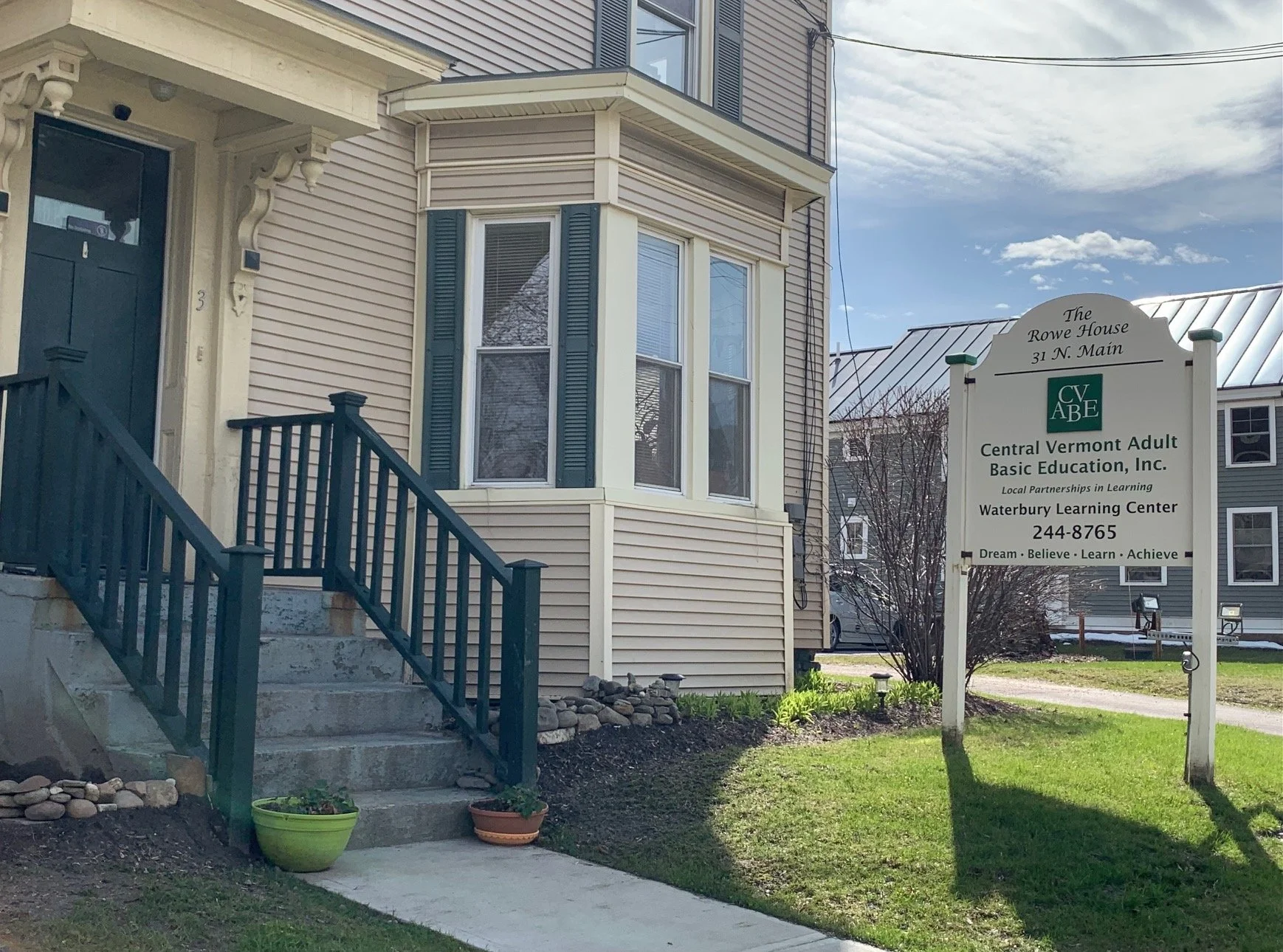Vulnerable community members become capable through Central Vt. Adult Basic Education programs
Sept. 19, 2023 | By Brian KravitzCentral Vermont Adult Basic Education is based in Barre with satellite centers incuding 31 N. Main St. in Waterbury. File photo
This week, Sept. 18-22 marks Adult Education and Literacy Week, both in Vermont and around the nation.
At Central Vermont Adult Basic Education, we use the time to honor the 450 students we’ll see this year, as well as the tens of thousands we have served over the last 58 years.
Adult learners are your friends and neighbors, the service professionals you encounter daily -- just about anyone. They all have one thing in common: they are seeking the assets that will better their lives and open doors in the family, community, careers, and further education.
The term “vulnerable populations” has been in the news lately. These are the groups that are at higher risk for dropping out of school, unemployment, poor health outcomes, incarceration, and poverty. Government program after program has been created to bring these populations into the workforce and out of vulnerability. We are proud to have been at the forefront, providing services and imparting essential assets to vulnerable populations for almost 60 years.
Our student body is 39% BIPOC and more than 51% have at least one disability. Statistically, these two demographics are at the highest risk of dropping out of school and living in poverty. Vermont as a whole is about 6.2% BIPOC (U.S. Census Quick Facts, 2022) and has a 14.8% disability rate (U.S. Disability Statistics by State, County, City and Age | Disabled World). Further, over 100 of our students are English language learners who have come to the U.S. to escape war, persecution, and poverty. Most of our students are vulnerable populations, and almost all live below the poverty line.
The statistics on these populations are very real. Sixty-six percent of our students do not have a high school credential and 43% come to us unemployed.
Our successes are also very real: Last year, 54 of our students earned a high school credential, 21 went on to further education, 310 improved their work readiness and 33 became employed. Central Vermont Adult Basic Education continues to provide our most vulnerable populations with tangible assets that change lives.
A common theme amongst vulnerable populations is a lack of hope and a feeling of low self-worth. Very often this is generational or cultural. Although we are proud of our statistical outcomes, what really motivates our work is when our students change their overall mindsets. As Meegan, a former student said: “For so long my mentality had been that because I had learning disabilities, I couldn’t learn…At CVABE I learned how to learn.” Meegan attained her GED, passed a rigorous personal trainer certification, and has realized her dreams. Student after student of ours gains perhaps the most important asset: hope!
Adult education and literacy at Central Vermont Adult Basic Education aren’t just for vulnerable populations. It’s for almost anyone who wants to improve their skills and get ahead. We can work with any out-of-school person age 16+, seeking skills. It may be someone changing careers and in need of computer or email skills, or a parent who wants to go back to college but needs to brush up on skills first. We also have a new Workforce Development program that yields specific certifications in high-demand areas from customer service to technology to paraprofessionals.
For this Adult Education and Literacy Week, we thank and honor our students for allowing us the opportunity to provide those assets. We thank our 74 volunteers for their over 3,000 hours of service. We thank our donors for supporting our students’ efforts.
Finally, we invite our community in Washington, Orange, and Lamoille counties to reach out and find out how we can help you get ahead.
All our services are free and confidential. For more information on programs or to volunteer, call 802-476-4588 or email info@cvabe.org.
Brian Kravitz is Development and Outreach Director for Central Vermont Adult Basic Education, which has provided free adult education and literacy services to out-of-school adults, age 16+ in Washington, Orange, and Lamoille counties for 58 years. Programs include literacy to high school levels, English language learning/citizenship, high school credentialing, and career and college readiness.

